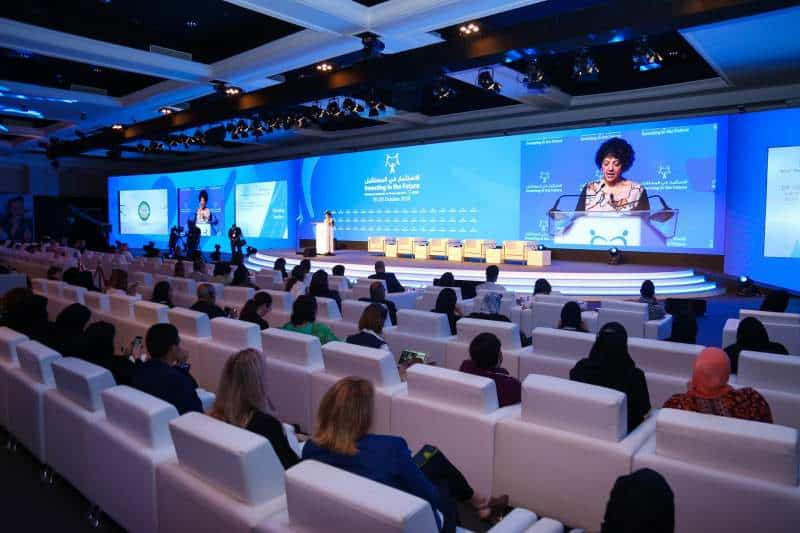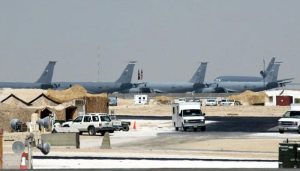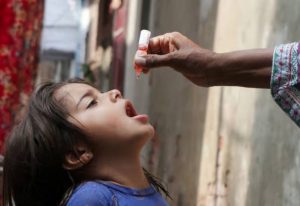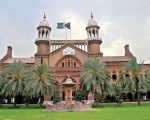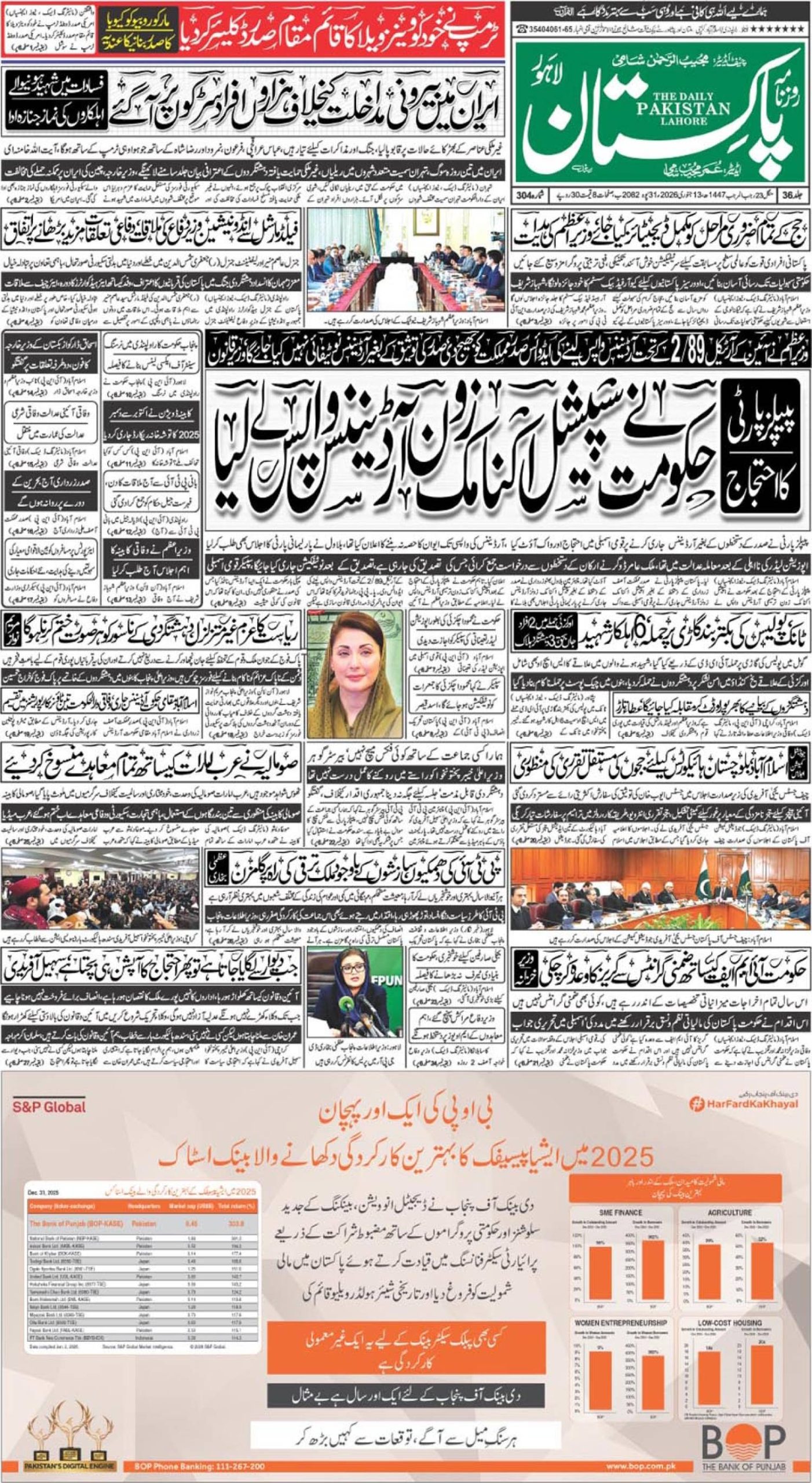SHARJAH – Her Highness Sheikha Jawaher bint Mohammad Al Qasimi, Wife of His Highness the Ruler of Sharjah, Chairperson of The Big Heart Foundation (TBHF) and Eminent Advocate for Refugee Children at the United Nations High Commissioner for Refugees (UNHCR), has called on youth from around the world, future leaders, experts and international organisations to extend their participation to the ‘Investing in the Future’ MENA conference (IIFMENA 2018).
IIFMENA 2018 will be a global platform for engagement between the youth and world organisations to explore how collaborative action to overcome their critical challenges can be strategised and practicable solutions can be shaped to offer the region’s youth better opportunities develop their skills, build their communities and shape their future.
Her Highness underscored that young people with their collective abilities and intellect hold the key to our future. We can either shape them to be instruments of peace and development, or leave them to drown in the extremism and darkness imposed by war and crises. Sheikha Jawaher has strongly called on world governments and international organisations to reach a consensus on charting a roadmap that will lead us to building a future where the rights of children are protected, and their opportunities are not compromised.
“Today, the world is faced with critical questions surrounding peace, ethics and development: Will we allow crises and conflict to shape our reality? Should we accept extremist forces taking over the world? Or should we take the initiative to claim our right to self-determination and freely determine our present, future and destiny,” added Al Qasimi.

The TBHF Chairperson has lauded the efforts of the United Nations and partnering organisations who continue to work relentlessly to ensure that the youth can overcome crisis to become agents of positive change, progress and development.
These thought provoking statements that point us towards an aspect of human development that is currently in a state of crisis, especially in the MENA region, have been made by Sheikha Jawaher Al Qasimi in the run up to the IIFMENA conference, which is organised by The Big Heart Foundation (TBHF) in collaboration with the United Nations High Commissioner for Refugees (UNHCR), United Nations Children’s Fund (UNECIF), United Nations Development Programme (UNDP), United Nations Entity for Gender Equality and the Empowerment of Women (UN Women), and NAMA Women Advancement Establishment, and Children’s Villages SOS.
Themed ‘Youth – Crisis Challenges and Development Opportunities’, the conference will be held on 24-25 October 2018, at Al Jawaher Reception and Convention Centre (JRCC) in Sharjah, and will bring together more than 60 speakers, 500 senior officials and young experts from around the world.
IIFMENA’s Message
If nations lose their youth, they’ll become decrepit!
Highlighting that the youth are inseparable from our vision of a future, Her Highness Sheikha Jawaher Al Qasimi said, “Sharjah hosts the IIFMENA as part of a series of cultural and humanitarian events because it seeks to enable its people play a philanthropic and developmental role to defend justice and human rights, a role that aligns with the vision of His Highness Sheikh Dr. Sultan bin Muhammad al Qasimi, Member of the Supreme Council and Ruler of Sharjah, and reflects the efforts of the UAE’s leaders who want this country to achieve excellence in all fields, particularly in philanthropy and global humanitarian action.
“It is extremely difficult to alter people’s roles in society and economy without changing their conditions for the better, and providing them with incentives that will enable them to face the challenges with determination and patience. Through IIFMENA, we seek to improve the circumstances faced by the youth and their nations.
“Our efforts to build a ‘tomorrow’ starts today; at this very moment. The youth’s role in leading the future depends on the care and opportunities they can be offered, and will be a direct outcome of our engagement with their needs and aspirations. The voice of young refugees who were forced out of their countries should be heard. No one understands their situation better than they do – they must be part of the solution building process.
“We are dealing with the devastating consequences of youth’s exclusion and marginalisation in several countries regions worldwide. We have seen youth development initiatives that were designed for the youth but ignored their participation, and thus, failed to achieve the desired results. Youth must be the centre of every nation’s attention because if they are disillusioned or lose their sense of belonging, no one can save us from becoming decrepit.”

Powerful and influential generations strive for a sense of belonging
Her Highness spoke about the power and influence of the young generations of today, given their access to latest communication technologies, their awareness of latest developments worldwide, which makes them more open-minded and opinionated compared to previous generations.
“The youth are at a turning point in human history! They will either strengthen bonds with preceding generations and shoulder the responsibility of development or build a wall around them and isolate themselves from the world. The latter can never have a positive outcome.
“As millions of children and youth become homeless, we should make an even greater effort to protect their identities and help them develop a sense of belonging, not only to their countries but also to the world. It is a human duty to make these young people with very impressionable minds that the world is their homeland and the international community is their community. Everyone is working hard to integrate them, engage them and treat them equally with everybody else.”
Is the world getting used to the horrendous effects of war?
Her Highness addressed how the world should handle the tragedies of conflicts, wars and natural disasters. “Human beings are resilient, and sometimes, our survival instincts and capability to adapt to situations leads us to accept an unfair reality. We want the IIFMENA conference to be a wake-up call and remind the world about the catastrophic consequences of wars and conflicts, which have the worst impact on youth.
“As I have said before, we will not allow crises to dictate our lives. We refuse to raise our children in this environment. Even if constantly reminding people of tragedies can hurt some people, pain is the lesser of two evils, and much better than indifference, apathy, and insensibility. If we can feel the pain of others it means humanity is fine; these feelings drive us towards developing solutions to end people’s suffering, particularly the youth.”

Refugees – not victims of crisis, but key to solutions
HH Sheikha Jawaher has pointed out that this year’s edition of IIFMENA will highlight the need to bolster support to countries that that host victims of crises, whether refugees or immigrants, particularly because 85% of these people have fled to seek asylum in developing countries, whose healthcare resources and public infrastructure come under tremendous pressure from the population influx.
“Without support, the asylum-seeking process will perpetrate more crisis and negatively impact wider regions. How can the youth enjoy their rights in a host country already facing several developmental challenges of their own? The existing residents will be fighting with the immigrant population to get their share of services and resources, which will only intensify the problem. This is the reason for growing national extremist tendencies that call for the expulsion of refugees and a failure to provide them with any form of help or support,” Her Highness observed.
How we can support Youth 2030 agenda
Sheikha Jawaher has commended the United Nations Strategy on Youth initiative (Youth 2030), which targets 1.8 billion young people, and also highlighted the importance of the Generation Unlimited campaign by UNECIF, which seeks to unite UN entities, the private sector, civil society organisations, and the youth.
She has reiterated that the Sustainable Development Goals (SDGs) are achievable only when young people can access their rights to education and equal employment opportunities, and are offered tools to harness their creative capabilities in an environment that allows free expression and liberty.
The Eminent Advocate for Refugee Children at UNHCR said: “Several initiatives that target the youth only focus on fulfilling market needs and are in keeping with creating job opportunities to achieve this goal, which leads to the neglect of community needs or people’s skill sets and career aspirations. This trend has become clearer than ever, particularly after the instability that has stormed the global economy.
“We should learn from these mistakes and say – we do not want our youth to pursue self-realisation in isolation from their communities, and we do not want success to be the only individual. This is because true personal success is reflected in a positive social impact. This is why we find that the Youth 2030 – by the focus on empowering youth and providing them with the skills of the labour market – leaves some other goals to be fulfilled. The other half is the formation of a prosperous, stable and secure future, where hunger, poverty, illiteracy, and crises are eradicated, exemplified by promoting awareness among the communities on the importance of accepting and embracing young refugees as human beings, not to look consider them as transient beings whose existence is temporary, nor as a burden on society.
Her Highness noted that the number of poor and hungry people worldwide increased significantly to 821 million people in 2017, pointing out that in view of these alarming numbers, we need to focus on solving humanitarian problems and on providing people’s basic needs.
“We want to create generations who have a high culture of work and a long-term humanitarian perspective, not just skilled people who are qualified to do their jobs. We want doctors who can feel the pain of patients, not just think of how much money they will earn by treating them. We want skilled artisans who create their products and give them access to technologies that will help them face the challenges of food and clean water security, and increase their access to medical treatment in remote areas! If our youth won’t harness these technologies to solve pressing social problems and ensure stability in their communities, what will they harness it for?” Her Highness Sheikha Jawaher remarked.

